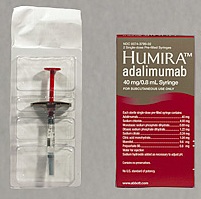 |
| AbbVie CEO Richard Gonzalez |
For the second quarter AbbVie ($ABBV) on a July 24 earnings call saw Rick Gonzalez, chairman and CEO, put Bristol-Myers Squibb ($BMY) and Gilead ($GILD) on notice that approval for hepatitis C therapy in Japan is expected in the second half of the year.
"Our virology franchise will be a significant growth driver for us in 2015 and in the years to come. With the launch of Viekira, we have established a meaningful position in the HCV market. We continue to see progress, particularly internationally, which is tracking ahead of our planning assumptions," Gonzalez said.
"We received approval in 47 markets and we expect a number of additional countries to come online as the year progresses and into 2016. This includes Japan where we continue to expect a regulatory decision during the second half of this year. As a reminder, in Japan, we will commercialize a 12-week two pill once-a-day ribavirin-free combination."
Bill Chase, executive vice president and chief financial officer, then added some detail.
"As we have said previously, the contribution of the international launch has exceeded our planning expectations, which will lead to a higher mix of international sales this year," he said. "International sales of Viekira in the second half will also benefit from an expected approval in Japan."
In the same week, Giovanni Caforio in his first earnings call as BMS CEO said they expect competition in Japan.
"Going forward, we expect competitive launches later this year to affect our business, particularly in Japan," Caforio said. "That said, we will continue to execute our HCD strategy, focused on addressing the needs of specific, challenging to treat HCD patient populations, which may vary by market."
Charlie Bancroft, chief financial officer at BMS, shed a bit more color on Caforio's remarks.
"Hep C sales performance in Japan were strong, but as you know the competitive landscape continues to evolve."
Chase also provided background on the main drivers for an 18% fall in Humira revenues internationally, citing a stronger dollar and the timing of shipments.
 "Internationally, Humira sales have grown nearly 9% on an operational basis in the first half of the year consistent with our planning expectations. As we noted last quarter, the first quarter international growth rate of nearly 15% was favorably impacted by the timing of shipments in select markets. Consequently, international sales growth in the second quarter was negatively impacted by this shipment timing."
"Internationally, Humira sales have grown nearly 9% on an operational basis in the first half of the year consistent with our planning expectations. As we noted last quarter, the first quarter international growth rate of nearly 15% was favorably impacted by the timing of shipments in select markets. Consequently, international sales growth in the second quarter was negatively impacted by this shipment timing."
Gonzalez later told analyst Jami Rubin from Goldman Sachs that on Humira there was "no impact from Remicade biosimilar on Humira in the international market" and promised "some color to support that."
"We are also confirming the original guidance," he said. "So obviously, if you thought we were sitting here with our toes hanging over the edge of the cliff that would be an awfully foolish thing to do. So I can tell you we absolutely have no concerns around that."
Then Gonzalez moved onto the color.
"So the biosimilar Remicade has been approved now in 46 countries. It's actually launched in about 36 of those countries," he said.
"They participated in 5 national tenders and they participated in about 11 regional or hospital tenders. If you look at markets that they've been in for more than a year to be able to measure what their market share is, their total market share is 2.8%, (and) so they haven't had any meaningful impact."
A bit later, in response to another analyst question, Chase specified Humira sales internationally--or rest-of-the-world outside the U.S.--in the second quarter as a negative price of 4.1% and volume up over 7% from the same quarter a year ago.
- here's the release and presentation